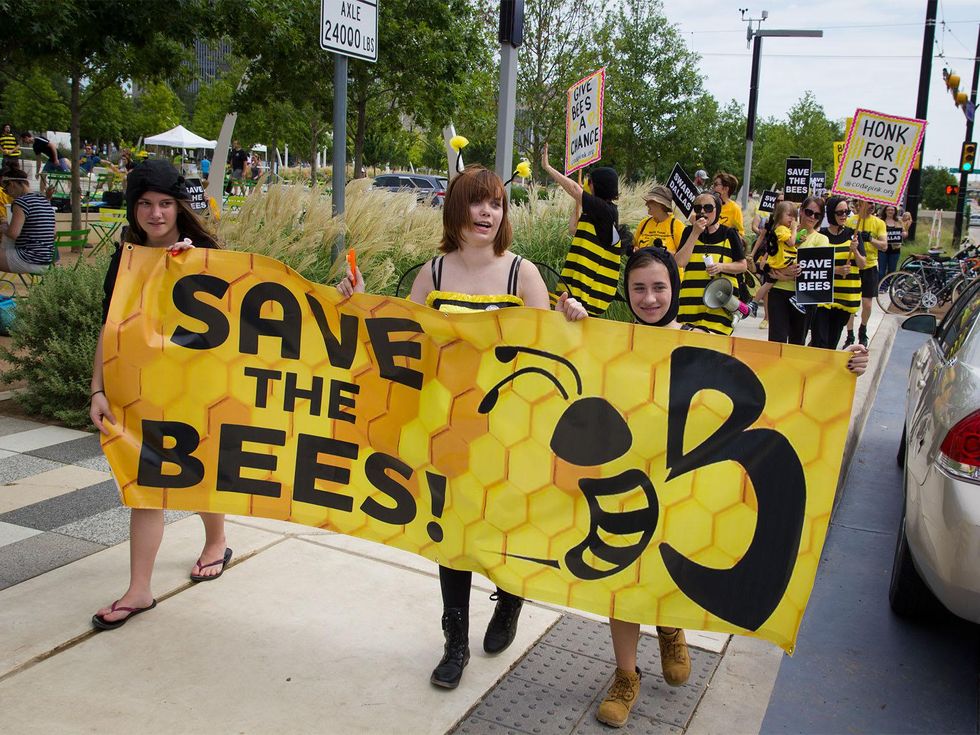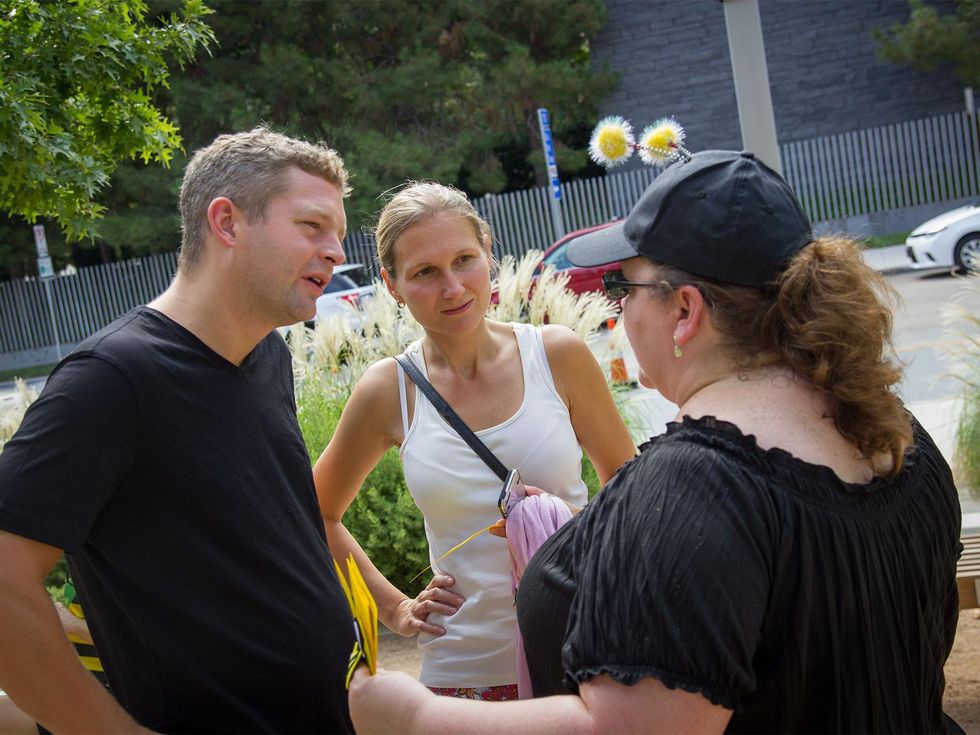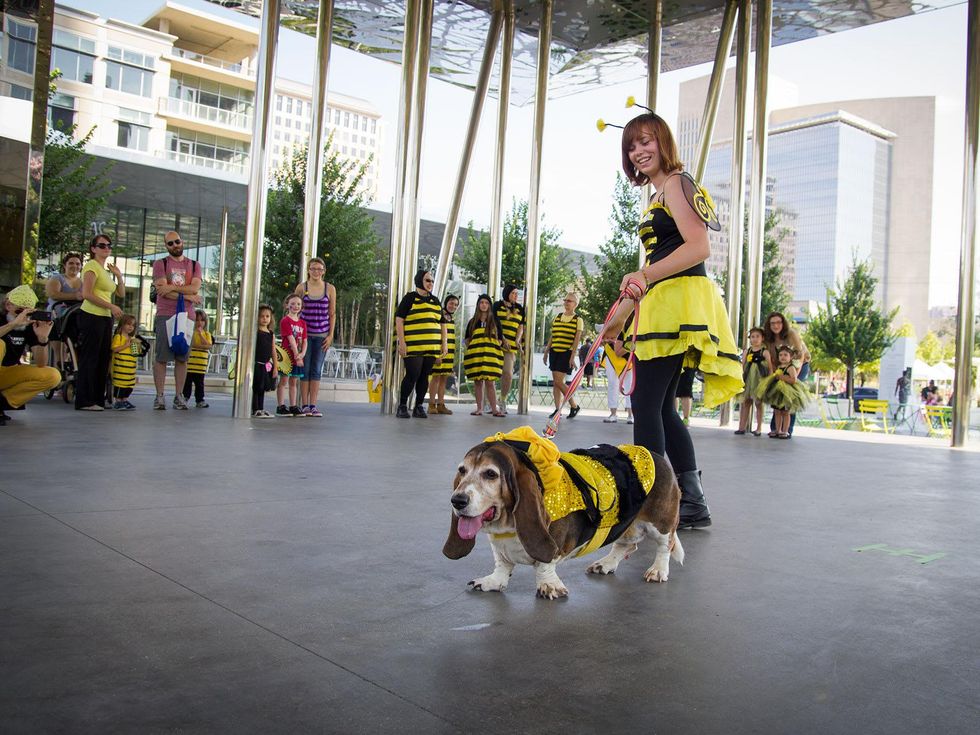The Farmer Diaries
Dallas demonstrators parade around Klyde Warren Park for International Bee Day
Dressed in bee costumes and hoisting signs, about 30 demonstrators pleaded the case for bees at Dallas' Klyde Warren Park on August 16, as part of a series of demonstrations in major cities around the world.
To raise awareness about the plunging population of the world's food-crop pollinators, the demonstrators conducted a "dance of the honeybee" and paraded around the park chanting pro-bee slogans. Speakers included organizer Leslie Harris and Susan Pollard of the Texas Honeybee Guild.
"There's a global epidemic of honeybee deaths," Harris said. "Bees are disappearing at an alarming rate, and 40 percent of the bee colonies in the U.S. have died out in the last 10 years."
Organizer Leslie Harris said the decline in the world's population of insect pollinators is an alarming issue that too few people know about.
Harris said the decline in the world's population of insect pollinators is an alarming issue that too few people know about, and little is being done to address the causes of the decline.
Pollard blamed industrial agricultural practices such as "monocropping" (in which huge expanses of land are planted with one crop), genetically engineered crops, and especially the potent new class of pesticides known as neonicotinoids for dealing a death blow to pollinating insects.
Leea Thompson Fudge, the mother of a 4-year-old, said her daughter's birth motivated her to become an advocate for strict protection of our food, water and natural resources. "The best tool we have is to educate ourselves, and, even more important, our children, on making conscious choices," she said.
"From birth, we need to teach them to be the change that can save our future."
Saturday was the conclusion of a week-long series of events that included activists in bee costumes riding public transportation, patronizing small businesses and passing out information to interested onlookers.
To reverse the decline of the world's pollinators, Harris had plenty of suggestions, including "voting with your fork."
"You can buy and eat local, organic foods and support organic farmers who use pollinator-friendly natural farming methods," she said. "You can also make a bee-friendly habitat by planting lots of organically grown flowers; flowering trees, shrubs and herbs; and native plants that bees like.
"And let your voice be heard. Call Congress and tell them you support the Save America's Pollinators Act, and think about joining an environmental or organic gardening group where you can continue to learn and take action to give our pollinators a fighting chance.
"If we lost our pollinators, grocery stores would look bleak. Over 85 percent of the earth's plant species require pollinators to exist, so if something isn't done to improve their health, most fruit and vegetable bins at the grocery store may one day be empty."



